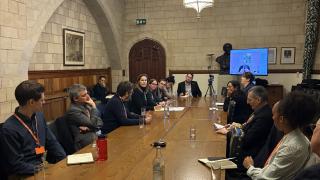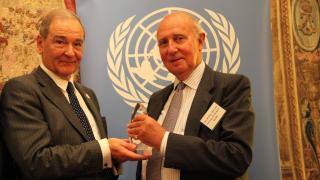
More than 150 members of London's diplomatic community joined UNA-UK on 22 October at the French Ambassador’s residence for a reception to celebrate the UN's 70th anniversary.
The event marked an opportunity for UNA-UK to present its annual Sir Brian Urquhart Award for distinguished service to the United Nations to Lord Hannay of Chiswick, a former UK ambassador to the UN and former Chair of UNA-UK. He now serves as Chair of the All-Party Parliamentary Group on the United Nations.
Our host, French Ambassador Sylvie Bermann (right) opened the event by reflecting on her work with the UN since the 1990s. She reflected on four UN priorities that continue to define its role today: peacekeeping, human rights, climate change, and the protection of women and girls. 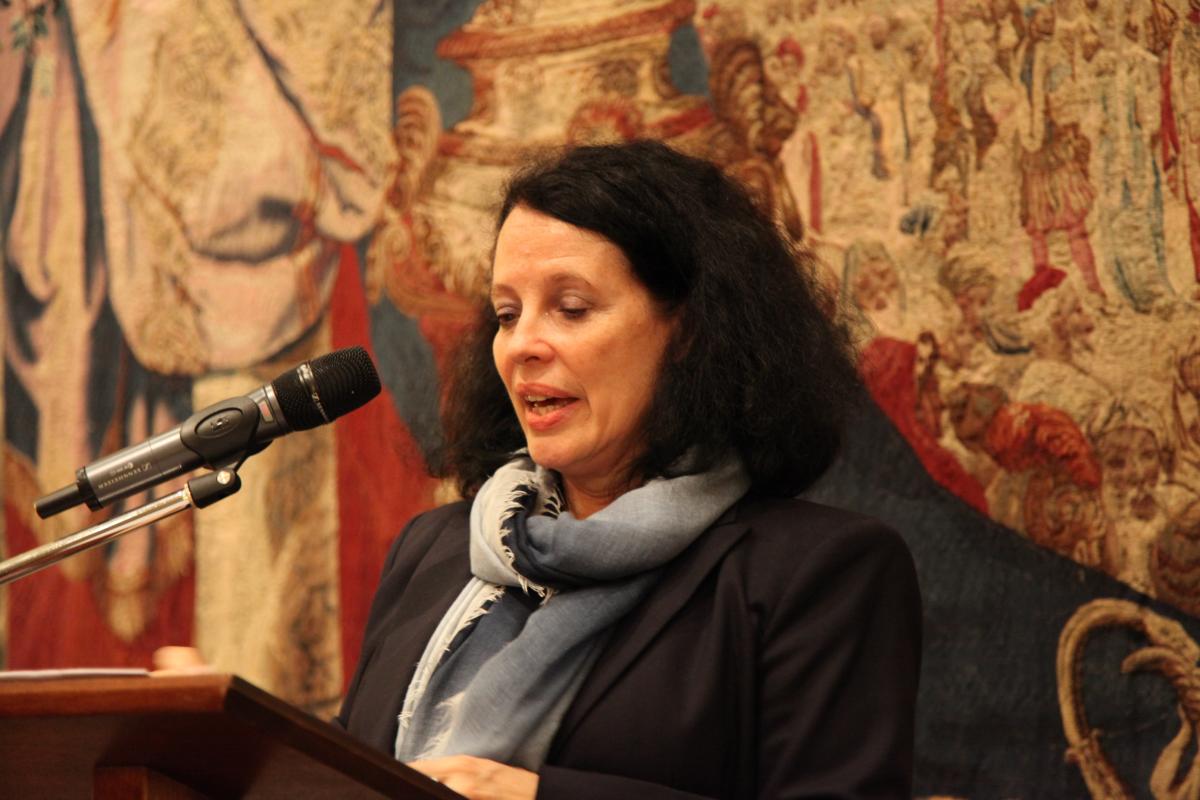
Ambassador Bermann spoke powerfully about the crucial role of the permanent five members of the Security Council as leaders in pushing forward burgeoning norms like the Responsibility to Protect (R2P), but criticised the gap that prevails between rhetoric and action, noting that “drafting mandates is not enough…P5 members must demonstrate we are ready to take part when needed”.
Chairman of UNA-UK, Sir Jeremy Greenstock, then took to the stage to welcome Baroness Valerie Amos, who has recently served as UN Under-Secretary-General for Humanitarian Affairs and Emergency Relief Coordinator. Sir Jeremy spoke on the indispensability of the UN, and called on the London diplomatic community to continue its long-term support for the UN and the invaluable work of UNA-UK in promoting the strength and contribution of UN’s work throughout its UK network.
Reflecting on her former role at the UN, Baroness Amos (below, left), said that she was "shocked" by the widespread disregard for the international human rights and humanitarian framework around the world. She stressed the need for UN member states to tackle this culture of impunity, stressing that accountability plays an essential role in providing the UN with legitimacy:
"I saw a lot of rhetoric but very little by way of accountability measures to address violations. I think it’s extremely serious and I think it’s something that collectively we need to address. The work of UNA-UK and others that care about the United Nations is very, very important in respect of that."
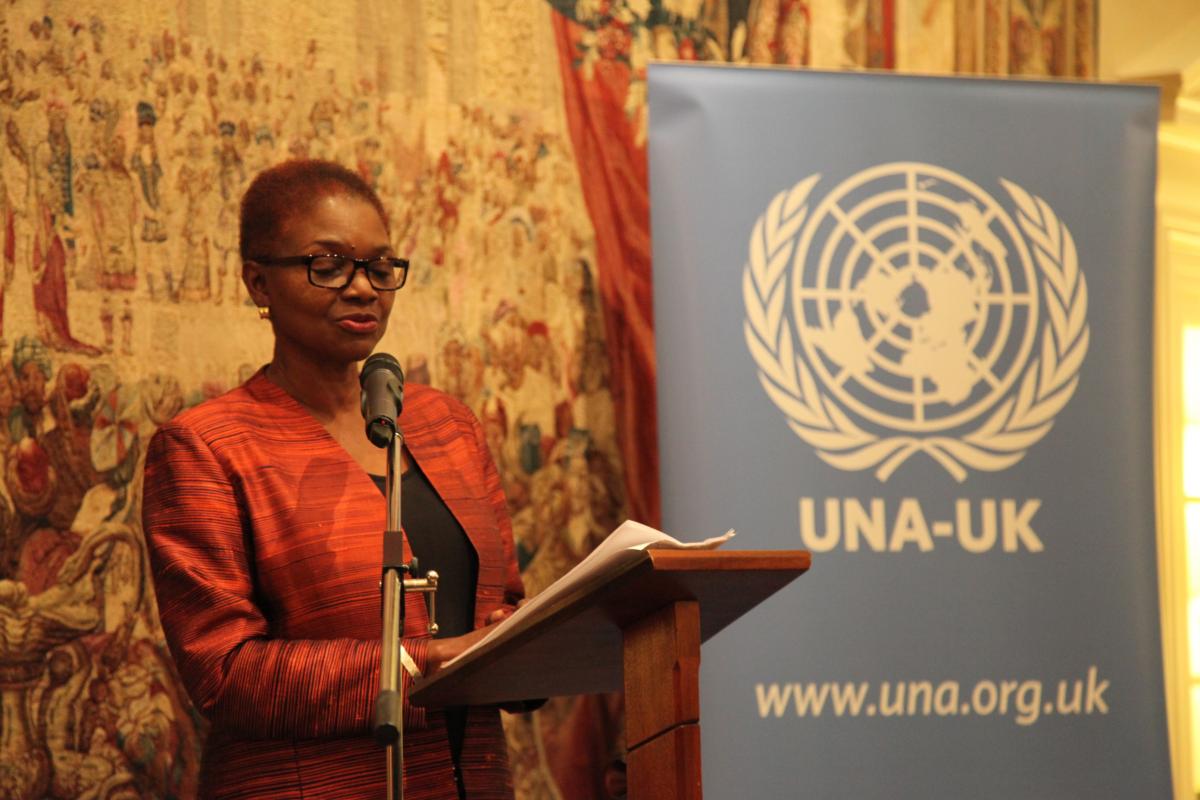
Following Baroness Amos' speech, Peter Sutherland (below, right) - UN Special Representative for International Migration - launched a scathing attack on the European response to the refugee crisis, criticising the surge of political rhetoric that is grounded in “racism and xenophobia”, which, according to Sir Peter, is reminiscent of the language used against the Jewish community under Nazi Germany.
He also criticised the failure to provide a voice for economic migrants in the response to the ongoing crisis:
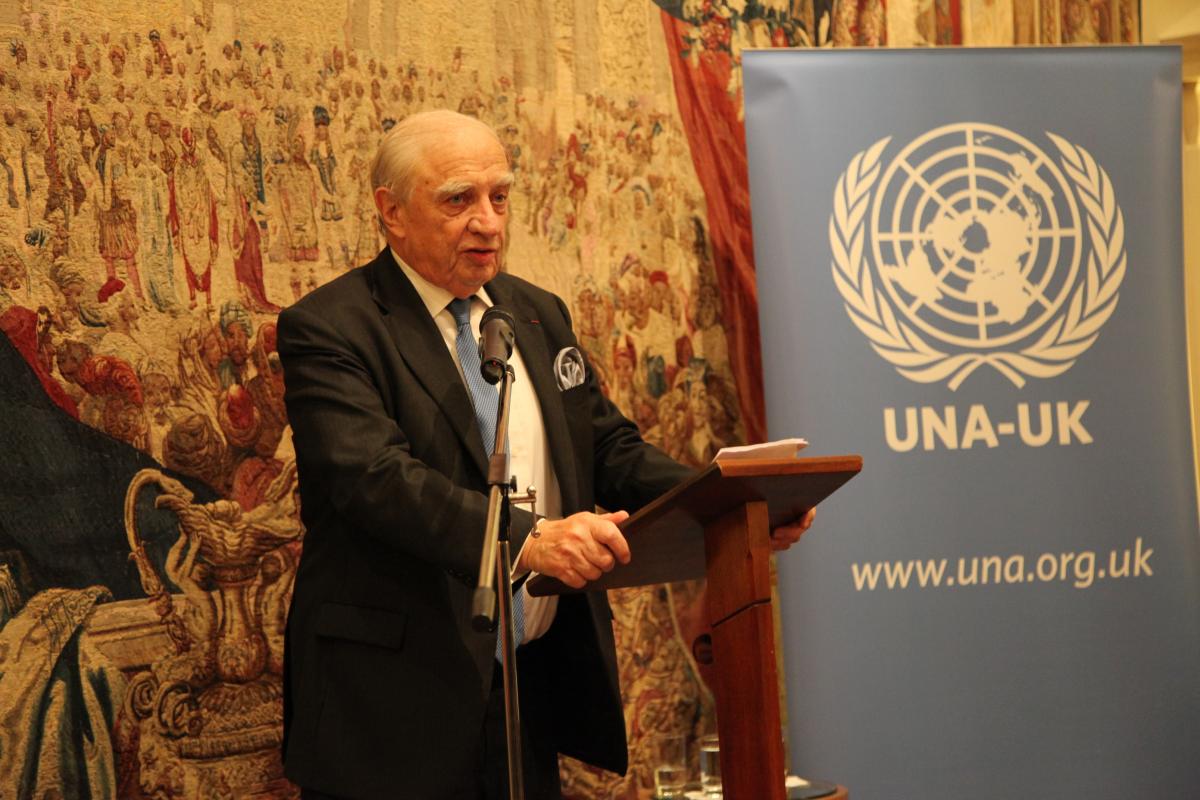
"What are economic migrants, I ask? Are they everybody else who isn’t persecuted? Does it mean that you’re going to send home people who are starving? That you’re going to send home people who are living through environmental degradation of a dreadful kind?"
While critical of the actions of UN member states, both Baroness Amos and Sir Peter (right) were optimistic about the continuing relevance of the UN and the capacity of its members to make the Organization more effective, recognising the importance of civil society organisations such as UNA-UK in applying pressure on governments to bring about change.
Lord Hannay closed the event by accepting UNA-UK’s Sir Brian Urquhart award, which celebrates individual dedication and endeavour to strengthen the role of the United Nations in the UK and worldwide.
The award was introduced by UNA-UK Executive Director Natalie Samarasinghe, who spoke of potential for the France and the UK to be the “progressive two” in the UN Security Council. She also spoke warmly of Lord Hannay's formidable reputation as an Ambassador, his continued efforts to encourage the UK to take its global responsibilities seriously, and above all, his passion for UN principles.
In his acceptance speech, Lord Hannay reflected on his time working with the UN in the immediate aftermath of the Cold War - a brief "golden era" for multilateralism - pointed to the sucesses such as the ending of proxy conflicts in Nicaragua, Cambodia, El Salvador and Mozambique. He echoed Sir Jeremy’s words on the indispensability of the UN and warned of the dangers ahead if the international community does not take the future challenges it faces seriously. In this vein, he called on the international community’s responsibility to “broaden and deepen the role of the UN”:
“What lessons can we draw from this roller-coaster ride which continues to this day? The UN’s indispensability remains as true today as ever; if we now slip back into disorder, substitute loose balance of power arrangements and interests for rules-based institutions, we will rue the day.
A set of photos from the event will be available soon.




